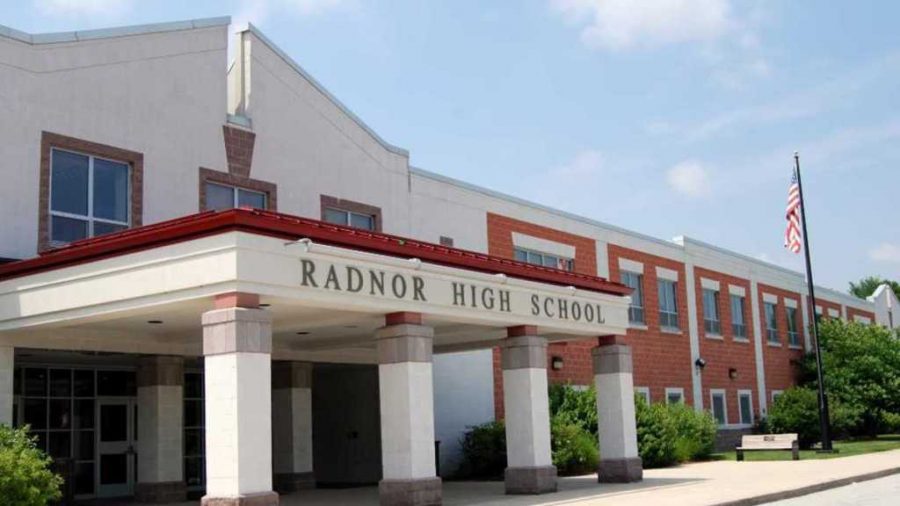Mrs. Reardon and Mrs. Pearsall: Radnorite Conversations with Teaching Legends
June 5, 2019
As the school year comes to a close, we find ourselves reflecting on the memories we made this year and the people who made an impact on our lives. Two figures stand out — not just for us, but also for countless Radnor students who were fortunate enough to attend class each day with these teachers. Mrs. Reardon and Mrs. Pearsall, who have both taught at Radnor High School for over 40 years, are unquestionable Radnor legends. Their influence on students, colleagues, and Radnor culture has made a real difference, so with our days as students numbered, we wanted to put the spotlight on them and recognize their contributions. In separate interviews, the Radnorite spoke with Reardon and Pearsall to find out more about their time here.
At Radnor, Reardon has done it all: graduate of the class of 1967, a substitute then permanent teacher in the social studies department, organizer of the Lower Merion Week Pep Rally, class sponsor, National Honors Society sponsor, coach for the girls’ tennis and field hockey teams, and scorekeeper at basketball games and track meets. Reardon has taught courses across the department in all four grades. She began as the youngest teacher in her department, and since then, she has developed a reputation as a tough but fair, dedicated, and kind-hearted educator. Students know Mrs. Reardon as the boss; she’ll be assertive and authoritative, but she’ll back it up with good judgment and poise.
In her conversation with the Radnorite, Mrs. Reardon shed light on Radnor history and how the school’s culture has changed over the years. The Vietnam War, in her view, marked a turning point. After she returned from college to teach at Radnor, she noticed that the students had gone wild. The protest culture of the era engendered in students a newfound inclination to rebel. Before hiring new teachers, administrators had to consider if the candidate would be able to “handle the kids.” Reardon noted that this shift precipitated open campus privileges, as such freedom might lessen the tension within the school walls. To this day, Radnor remains one of the only schools in the area to retain open campus, despite attempts by principals throughout the years to take it away. Reardon emphasized her belief that the main reason for Radnor students’ continued access to open campus is the teachers’ commitment to it. While the administration has made gradual changes (such as putting freshmen in study halls), the faculty has preserved this quintessential Radnor freedom.
Another big change to the school culture was the elimination of the faculty lunchroom. Previously, teachers had their own personal food service employee who would serve them lunch. Shortly after a nasty 1986 strike, the administration removed this privilege. Now, teachers only dined with other teachers in the same subject area, in smaller rooms located in each department hallway. Many suggested this was a deliberate attempt to prevent another strike, by reducing the teachers’ ability to unite and coordinate.
Reardon also pointed to the selling of the property of Rosemont Elementary and the land that is now Penn Medicine as some of the biggest mistakes made by RTSD during her tenure. The township was under financial duress as the student population peaked in the late 70s at around 1,600, then shrunk to just over 700 in the late 80s. As a consequence, the township has had to purchase other, less desirable lands.
In contrast to that culture shift, Reardon noted how there has been “an awful lot of continuity.” Radnor students can and always have been able to“go wherever [they] want to college” and we have a “good graduation rate.” Our high school’s prestigious reputation preceded the online rankings of our contemporary times, with Radnor being always well-regarded and respected by public high school peers.
Reardon admired a few figures who have shaped her time here, including Ethel Encke, a former Radnor teacher, and coach. Encke, the namesake for both the turf field and the park adjacent to the Municipal Building, made her mark on the Radnor community. In her 44 years in the school district, she coached every girls’ sports team and established the Radnor Day Camp. According to Reardon, Encke led the charge for the growth of women’s sports in the township. She competed with older male teachers to ensure all girls could participate. Reardon told us, “we didn’t need Title IX. We had Ethel.”
Before the interview concluded, she pointed to the presence of Mrs. Civitella as a big reason for why she is still teaching 48 years later. Reardon received a call in the late 90s from Mrs. Civitella’s sister in law, encouraging her to mentor Civitella. “You’ll love her,” Reardon was told, “you guys will get along great.” Reardon, skeptical, agreed and two years later she willingly agreed to share rooms. Flash forward to the present day, and Mrs. Civitella’s sister in law was correct. Throughout her interview with the Radnorite, Reardon asked Civitella to recall information she did not remember and remarkably each time Civitella knew the answer.
Mrs. Pearsall did not attend Radnor as Mrs. Reardon did, but her husband and children are all Radnor alums. Pearsall grew up in New Jersey and attended Summerville High School. Putting her kids through Radnor schools, she learned quickly just how much work Radnor students receive. In her efforts to combat this, Pearsall tries to “keep the bar high, but the amount of work reasonable.”
Since 1976, Pearsall has taught across the English department. She was the youngest teacher for 18 years but has since transitioned from being “the youngest one” to being “the veteran.” Students know Mrs. Pearsall as warm, enthusiastic, accessible and caring. She sets the bar high, but she gives each student the individual attention they need to reach those high standards.
Pearsall, the current faculty adviser for the student government, formerly worked on the school plays for 18 years, coached cheerleading and softball, served as English department chair, and organized the LM pep rally three times, which “has always been this big.”
LM Week has always been one of her favorite Radnor traditions because she believes it epitomizes who we are as a Radnor community with its “ability to pull everyone in.” Additionally, while she feels some are quick to judge Radnor, Pearsall believes these people do not understand its “generosity of spirit.” She explains that Radnor students are “high achieving, ambitious, involved caring, and enthusiastic” and Radnor is “such a quintessential, typical high school when you think what high school should be.”
Pearsall considers the mid-2000s through now as her favorite decade at Radnor. In the early 2000s, the administration didn’t appreciate the value of open campus, and the privilege began to erode. Pearsall has always been a big advocate for student freedom and open campus. Students were disciplined for having food or water bottles in the hall. Pearsall explained how Principal Schellenger’s arrival re-established the faith in students. She also pointed to Schellenger’s refusal to take away cell phones and lock them in his office, a common practice at neighboring schools, as emblematic of the psychological shift. Schellenger offered the opportunity for cell phone use in the halls and cafeteria. While it may sound ridiculous today, it was progressive and student-centered at the time. That along with other changes moved the overall atmosphere of the school to become positive again. Pearsall credited Principal Bechtold with continuing “this atmosphere of positivity in our school and of faith and trust in our students.”
Reflecting on the changes over her teaching career at Radnor, Pearsall points to the influence of technology in learning as the most positive. She explains, “Teaching the writing process by using computers and word processing tools opened up endless channels of research.” The most negative change Pearsall has witnessed is the increasing number of students “who struggle with learning and emotional hurdles, particularly stress and anxiety, that impede their achievement and well being.” Nevertheless, she feels that our district has the resources and expertise to help these students.
Pearsall acknowledged the difficulty of watching all of these teachers who she has worked with over the years retire. “People I worked with for thirty years are no longer here and that has been the biggest adjustment.” She enjoys seeing the new teachers and Radnor grow.
Moving into the 2020s, Radnor will likely face many more changes to its programming, faculty, and schedule. Nevertheless, teachers like Mrs. Pearsall and Mrs. Reardon will continue to be the backbone of Radnor’s spirit. Their impact on the school community will be felt for years to come.







